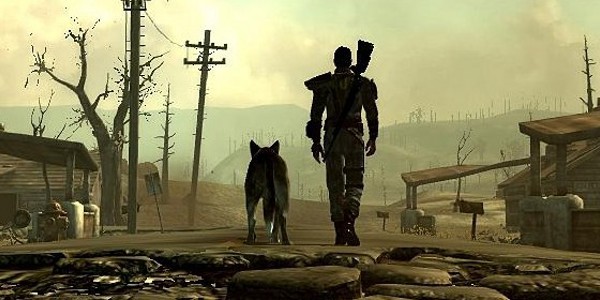Octavia Butler’s Fallout: Suggested Reading for Post-Apocalypse Fans

Our geek culture compulsion toward the post-apocalypse swells again with the release of Bethesda’s much-hyped Fallout 4. It’s a justified love—these worlds-after-the-fact operate as a great thematic hook and an extremely fun setting. Post-apocalyptic narratives contain as much built-in potential for pulse-pounding action as they do deep philosophical inquiry. From George Miller’s Mad Max: Fury Road to Margaret Atwood’s Oryx and Crake, the world in ruin remains so very compelling for a great deal of fantastic reasons.
These narratives, for one, reveal our anxieties about what will eventually spell doom for society. Alien invasion? Corporate greed? Natural disaster? Economic downfall? Nuclear war? They give us insight into our present-day conflicts by projecting them into the future to see where they lead us and where we potentially go wrong. On a more visceral level, post-apocalyptic narratives appeal to us because of the physical and psychological struggle for survival. Just look to a number of zombie apocalypse narratives—The Walking Dead especially—to see that. It is interesting to see how we treat each other, work with or against one another, when all pretense of society has been thrown out the window.
Now, post-apocalyptic narratives popularly focus far more on the latter, more physical appeal. Fallout is iconic for its bizarro retro-future, yet the reasons behind how the setting got there are less important than what happens afterward. This is by no means a bad thing, as Fallout is amazing at its world-building. One, however, could stand to appreciate these scenarios from a different point of view; a balance between varieties of post-apocalyptic narratives is healthy for a wholesome appreciation of the genre.
Here, I encourage the reader to take a look at the work of Octavia E. Butler. Specifically, her two novels regarding a not-too distant future in which humanity is brought to the brink, and then pushed further: The Parable series.
“All that you touch
You Change.
All that you Change
Changes you.
The only lasting truth
Is Change.
God
Is Change.”
This oft-repeated verse is the heart of Butler’s Parable novels. The first, Parable of the Sower, is the account of Lauren Oya Olamina. Beginning as a young girl in a gated low-class slum in Los Angeles, the novel follows her ascent to religious leadership within a small commune in northern California. Her belief system is termed Earthseed, in which the force of change is viewed as god, and its destiny is to “outgrow” Earth and spread its community “among the stars.” The second novel, Parable of the Talents, continues Olamina’s story, juxtaposing Lauren’s diary entries describing the progress of Earthseed with those of her daughter’s, years after the fact.
Parable’s world might be considered dystopia more than apocalypse, yet following the Earthseed viewpoint one may view it far more cynically. They believe that the world is in the middle of its destruction, past the point of resurrection. It is a much more insidious apocalypse, more subtle than a nuclear explosion.
A few notes on the condition of the United States in these novels: The wealth gap has widened to the point that the lives of the underclass are as livestock. Sexual slavery is common. Christian zealotry is mainstream to the point that armed takedowns of alternative religious communities are frequent. U.S. currency is obsolete—big business instead establishes company towns with their own unique forms of money, letting them control the prices at will to keep their employees in constant poverty with no possibility of escape. Smart drugs are overwhelmingly popular, to the next generation’s detriment. One drug’s side effect involves the development of “hyperempathy” within children, a psychosomatic illness in which the afflicted takes in the pain, whether real or imaginary, of those they witness. Another creates an obsession with fire, to the point that pyromania is a widespread epidemic.
Fallout considers the societies that have developed once the world has already ended. The Parable series considers the societies that develop when the world is in the midst of ending. Earthseed views the world as inevitably headed toward destruction, already apocalyptic, if not breaching the post-apocalyptic, thus the push for the creation of new societies on other planets.
This struggle to build life on another world was to be recorded in Butler’s third Parable novel, Parable of the Trickster. This was never completed. Butler suffered from writer’s block in the 2000s, only managing to produce a few short stories and the short novel Fledgling before she died in 2006.
Nevertheless, the two Parable novels are both amazing and intelligent works of fiction. With its descriptions of a society lost to chaos and its profound spiritualism, these novels honor the many ways in which we love post-apocalyptic narratives. They are smart and provocative, engrossing in their philosophical depth and thrilling in their accounts of human struggle.
Bryan Cebulski is a cultural historian, videogame critic, author, aspiring point-and-click adventure protagonist. Featured on Gamemoir, Hardcore Gaming 101 and Kill Screen. Interested in media representations of gender, horror, coffee, audiobooks and insupportable pop punk music.
—Please make note of The Mary Sue’s general comment policy.—
Do you follow The Mary Sue on Twitter, Facebook, Tumblr, Pinterest, & Google +?
Have a tip we should know? tips@themarysue.com